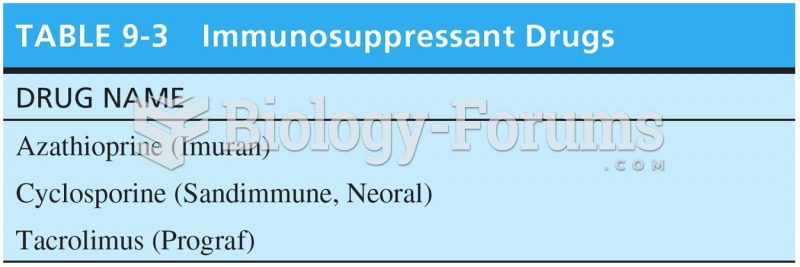This topic contains a solution. Click here to go to the answer
|
|
|
Did you know?
Acetaminophen (Tylenol) in overdose can seriously damage the liver. It should never be taken by people who use alcohol heavily; it can result in severe liver damage and even a condition requiring a liver transplant.
Did you know?
Drugs are in development that may cure asthma and hay fever once and for all. They target leukotrienes, which are known to cause tightening of the air passages in the lungs and increase mucus productions in nasal passages.
Did you know?
Medication errors are three times higher among children and infants than with adults.
Did you know?
People about to have surgery must tell their health care providers about all supplements they take.
Did you know?
The average office desk has 400 times more bacteria on it than a toilet.







